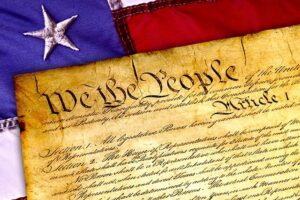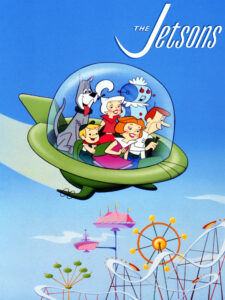Freedom is a concept bandied about in the USA as if it was the solution to all our problems. Yet, the word freedom has multiple meanings in different contexts. On an individual level, freedom can mean “not imprisoned” or “unrestrained.” Other meanings include the ability to change or a sense of autonomy. Some people feel that freedom means the right to do as they please regardless of the consequences to the planet and other living creatures including humans.
 Interestingly enough, the USA’s Declaration of Independence does not mention the word “freedom” but instead uses the word “liberty.”. If we look at “liberty” from the perspective of John Stuart Mills, he seems to be arguing that freedom focuses on the power to do as one wishes, while liberty is limited by considering the rights of others and focused on avoiding arbitrary government intrusion.
Interestingly enough, the USA’s Declaration of Independence does not mention the word “freedom” but instead uses the word “liberty.”. If we look at “liberty” from the perspective of John Stuart Mills, he seems to be arguing that freedom focuses on the power to do as one wishes, while liberty is limited by considering the rights of others and focused on avoiding arbitrary government intrusion.
Lately, I have been thinking about how far right politics seems to focus on this idea of “freedom from government” and freedom to do as one wishes regardless of considering the rights of others, especially when those others include non-human creatures like wolves, trees, rivers, and mountains. Going back to Mills, I interpret his definition of freedom to be vested in those with power and ability in a given situation. To me this sound like those of us who are not powerful by cause of gender, race, ability, age or human status, have no right to pursue “freedom” in this manner.
Reflecting on these ideas, I am a firm believer in liberty, but freedom is more contextual for me. Of course I believe in freedom of the press, speech, religion, assembly, and ideas, yet I do believe in considering the rights of others including the non-human world.
Thinking about progressive and centrist politics, the idea of freedom expands to include ideas of freedom from things, like freedom from violence, hunger, discrimination and oppressive conditions.
Liberty also applies to systems of government. the USA’s Declaration of Independence states that “as Free and Independent States, they have full Power to levy War, conclude Peace, contract Alliances, establish Commerce, and to do all other Acts and Things which Independent States may of right do.” I understand this to mean creating a system of government controlled by the people, not the idea of being free from government. Although that poses the topic of direct democracy, that I will have to set aside for another day.
But enough of relying on what people thought in the eighteenth century, what do people think now? Many people want to stay focused on how the founders of the USA saw the world and stay true to that. I don’t buy into that perspective. To me the point of having a government represented by the people is so that our institutions and laws can evolve with the needs of our country. Our country has change in multiple ways since 1776 and trying to run a country now they way people did then is ludicrous to me. No private business that hadn’t continually changed and evolved since then would still be in existence and no country that doesn’t meet the challenges of the present and future moments will survive very long.
For example, the founding fathers made no reference to the role of internal-combustion-engine transportation in the world, because they did not have crystal balls to see into the future. Now that we have them, we make laws to deal with them and as a culture we decide how to allocate resources to people who drive and people who walk or bicycle. I am sure we will do the same when we are all living like the Jetsons. 
I also believe the founding fathers were the progressives of their area. They came up with ideas that were new and radical at that time even though they defined citizens narrowly as white men with property. Yet over the years we have changed the constitution to give citizenship to others and hopefully one day, trees and birds will have the right to “the pursuit of happiness.”
For those who want to go back to the “good old days,” I say absence makes the heart grow fonder. Every era has good and bad aspects. I think a truly enlightened culture would learn from the mistakes of the past and use them to create a healthier future for the planet and all living creatures including humans. Do our children deserve anything less?